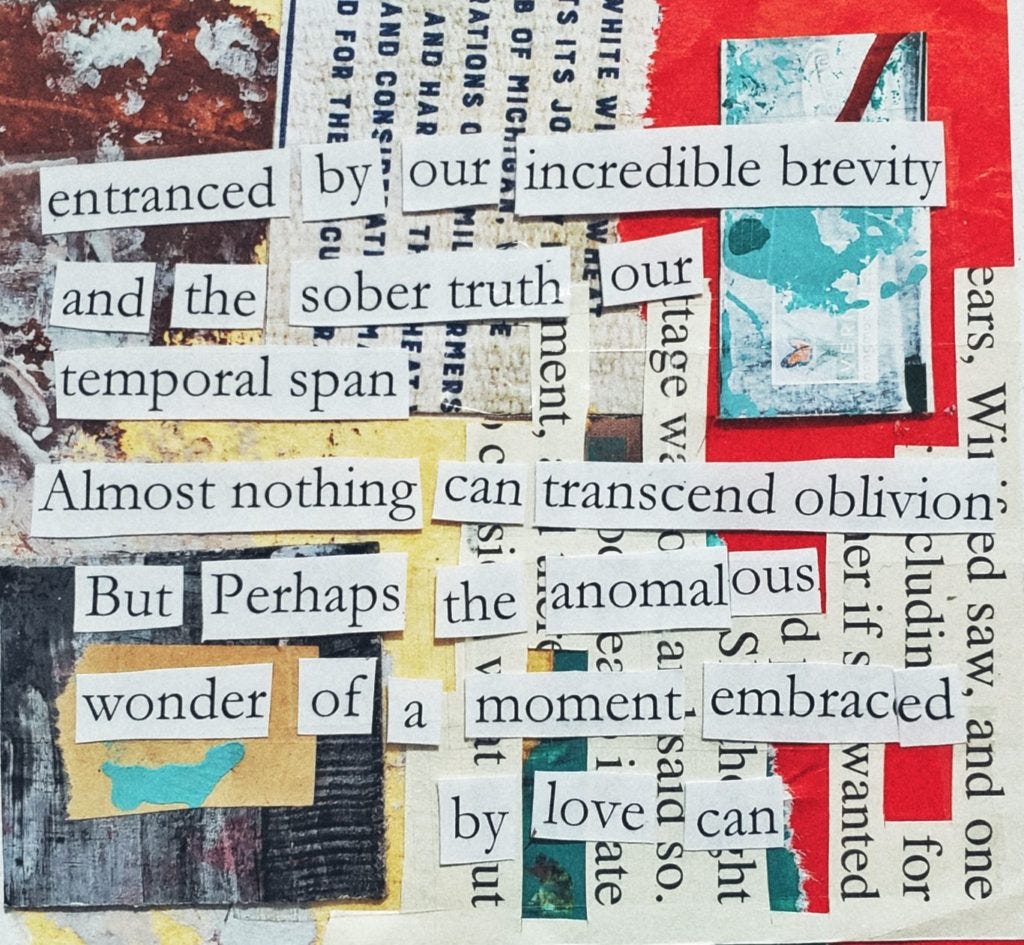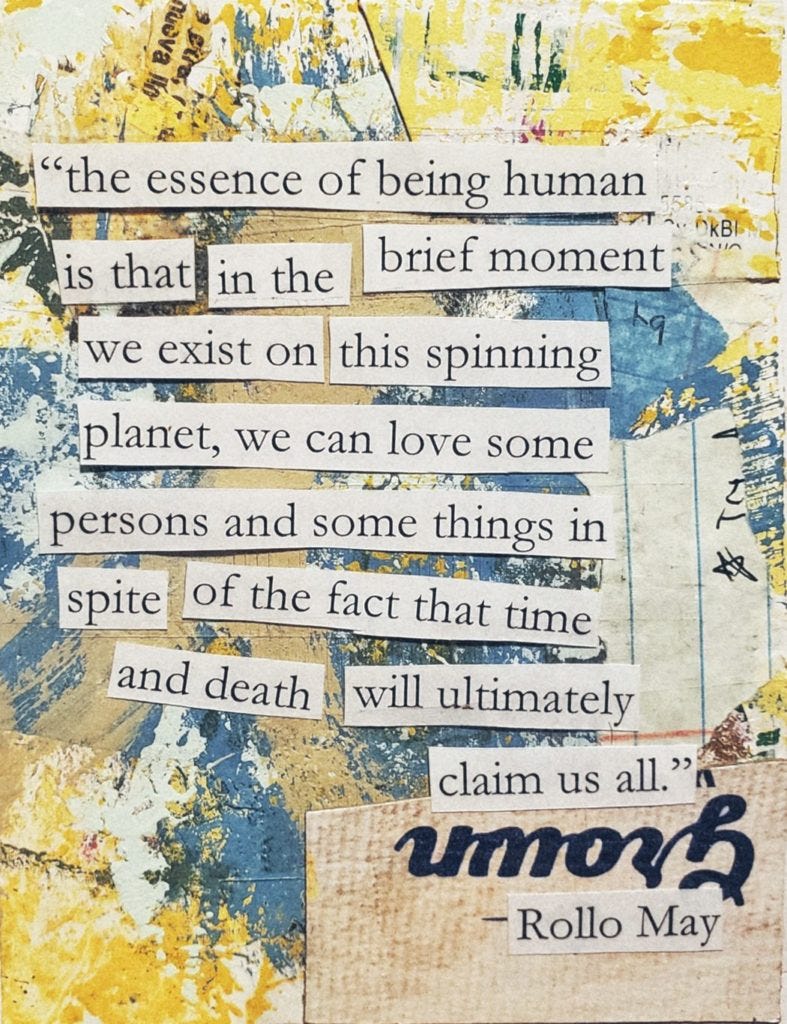The anomaly of us...
"Reality can get dismal", says Andrew Solomon, and "Human beings are fundamentally absurd". In both cases, I couldn't agree more. We are the most arrogant of all species. We are so entranced by our own self-assuredness, so intoxicated with our own self-importance, that we fail to see how the incredible brevity of our temporal span makes us infinitesimally inconsequential, especially in comparison to the gargantuan scale of the cosmos.
It is a somber and sober truth that all of the most monumental and self-congratulatory achievements of human history combined don't make a damn bit of difference to an ever-expanding universe. As the author of Ecclesiastes says "Everything is meaningless"; it is "the vanity of vanities."
John Green writes that "The future will erase everything, there's no level of fame or genius that allows you to transcend oblivion. The infinite future makes that kind of mattering impossible."
And, elsewhere he says that
"There will come a time...when all of us are dead. All of us. There will come a time when there are no human beings remaining to remember that anyone ever existed or that our species ever did anything. There will be no one left to remember Aristotle or Cleopatra, let alone you. Everything that we did and built and wrote and thought and discovered will be forgotten and all of this...will have been for naught... There was time before organisms experienced consciousness, and there will be time after."
(Side note: John Green is my Spirit Animal)
Perhaps, it seems pessimistic. Perhaps, it even seems nihilistic. Perhaps it's both. But this doesn't mean that such knowledge isn't integral to our understanding of the world and our place in it. Nor does it mean that it is antithetical to either joy or wonder.
Maybe such sentiments are disheartening and angst-ridden, but, as Solomon goes on to aptly point out, "A sense of the absurd is good armor for life", and "Sometimes, it's good to feel sad". Sometimes, as Green concurs, "Worrying is the correct worldview" because "Life is [indeed] worrisome". It is a disconcerting, and, perhaps, even a discouraging comfort to recognize that not only will the world "survive us", and not only will life "go on even when we don't', but that, as Green suggests, "in some ways it will be more alive."
And yet, it is because we are so absurdly irrelevant, so fleetingly ephemeral, that we are also so wondrously unique , so unusually lovely, so provocatively peculiar. We are not built to last, especially not forever. Almost nothing is. Almost nothing does. Every passing moment, then, is a beautiful embrace of memento mori. Although it's not always easy to see, it's vital that we try to find ways to.
Rollo May says that "the essence of being human is that in the brief moment we exist on this spinning planet, we can love some persons and some things in spite of the fact that time and death will ultimately claim us all." Our life is an anomaly in the night sky that we are lucky enough to witness and privileged enough to be a part of, even if oblivion will one day wipe it all away. For this one moment, however brief, we are here, and that is the only thing we need to be.



